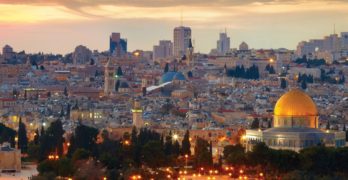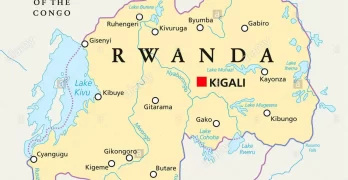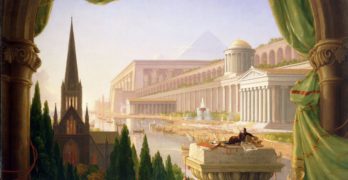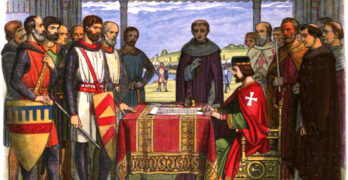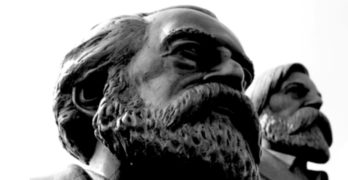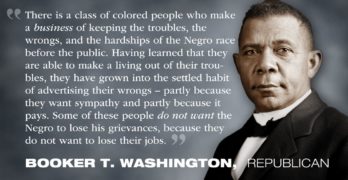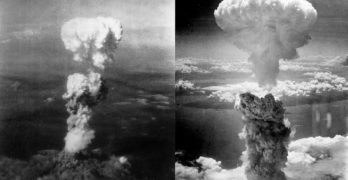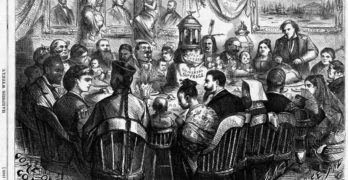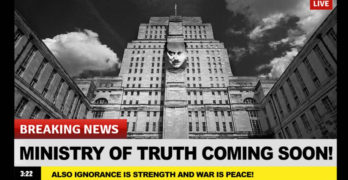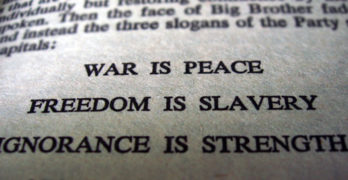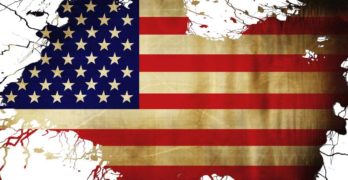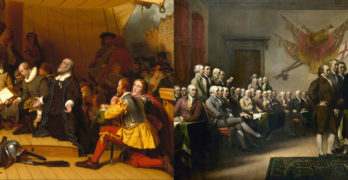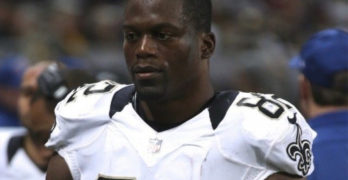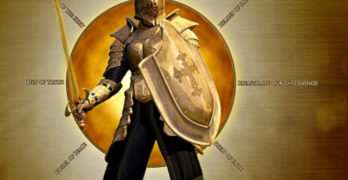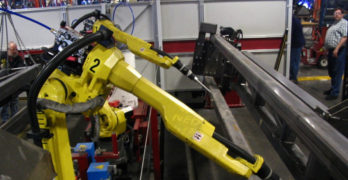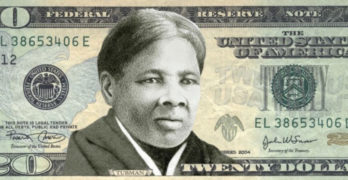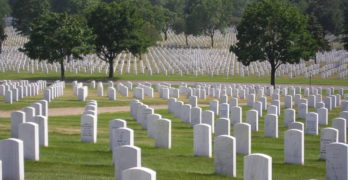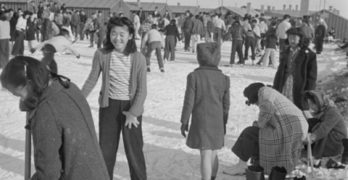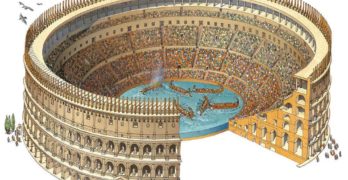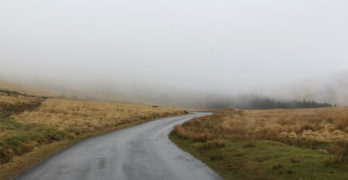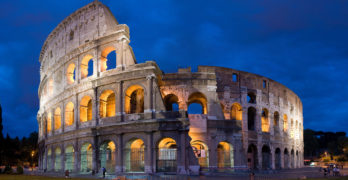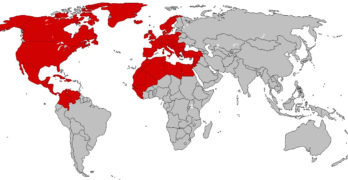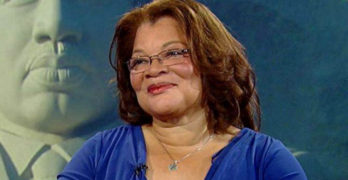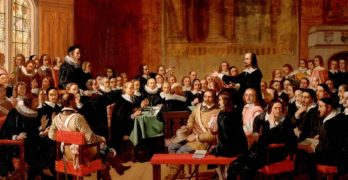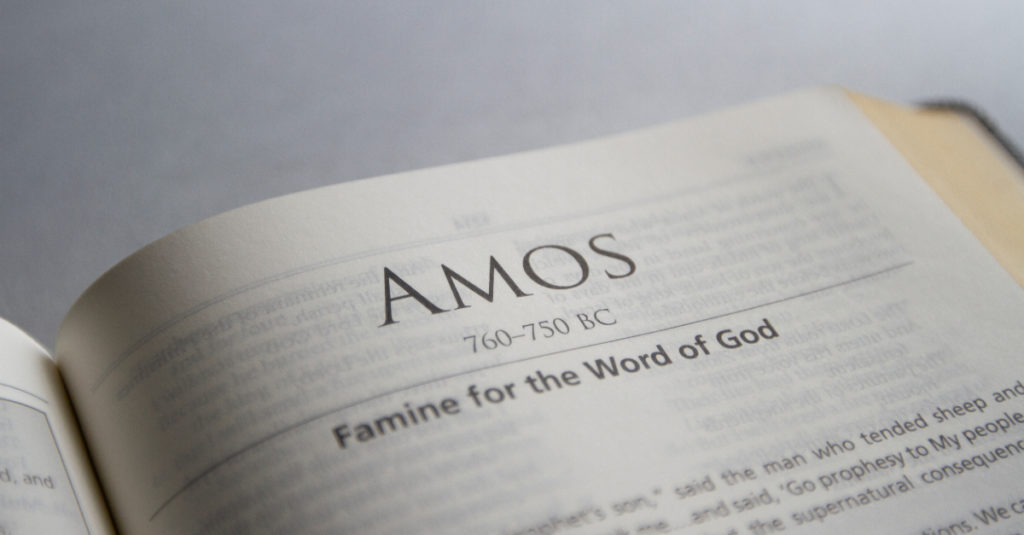 The name Amos means “burden” or “burden bearer.” Amos was a shepherd and fig grower from Judah, which was the southern kingdom, but he prophesied to the northern kingdom of Israel. He confronted the false religious leaders of his day and was not intimidated by priest or king. When we look at the conditions in Israel during Amos’s time, we realize that we are no different in today’s society.
The name Amos means “burden” or “burden bearer.” Amos was a shepherd and fig grower from Judah, which was the southern kingdom, but he prophesied to the northern kingdom of Israel. He confronted the false religious leaders of his day and was not intimidated by priest or king. When we look at the conditions in Israel during Amos’s time, we realize that we are no different in today’s society.
Israel was at the height of its political power with a prosperous economy, but the nation was spiritually corrupt. People worshiped idols, especially at Bethel, which was supposed to be the nation’s religious center. At Bethel and Samaria the worshipers had sex with male and female prostitutes, believing that this would persuade God to bless their crops.
The wealthy elite of Israel had become prosperous, greedy, and unjust. There was slavery as a result of over taxation and land confiscation. There was cruelty and indifference toward the poor and oppressed. The standard of living was high, but the gap between the rich and the poor was wide. The rich got richer and the poor got poorer. The rich had two homes, one for the summer months and the other for all other times, but many people didn’t even have one. With all the comfort and luxury came self-sufficiency, pride, corruption, debauchery, and war.
The people rejected real faith in God by acting religiously. They had become interested in the gods of other nations, including the gods of the East and the West that arrived with traveling merchants. So God sent Amos to denounce this social and religious corruption. Amos first challenged the sins of the surrounding nations. The entire first chapter details God’s judgment on Israel’s neighbors. Maybe the Israelites must have cheered Amos, saying, “Preach it brother” until he directed his words of judgment to them. He received this prophetic message through visions two years before the earthquake. The Lord gave Amos the reasons for judgment:
Hear this word that the Lord hath spoken against you, O children of Israel, against the whole family which I brought up from the land of Egypt, saying, You only have I known of all the families of the earth: therefore I will punish you for all your iniquities….
Hear ye, and testify in the house of Jacob, saith the Lord God, the God of hosts, That in the day that I shall visit the transgressions of Israel upon him I will also visit the altars of Beth-el: And the horns of the altar shall be cut off, and fall to the ground. And I will smite the winter house with the summer house; and the houses of ivory shall perish, and the great houses shall have an end, saith the Lord (Amos 3:1–2, 13–15 KJV).
God’s people failed to realize that He held them to a higher standard than all other nations. God intended to guide them Himself, making them a nation of leaders who could become a model for the entire world. His heavy judgment fell on them because He held His people accountable to lead the world to Himself.
The events in this book of Amos fit the same biblical patterns demonstrated in Old Testament history. Again and again, as Israel prepared to cross the river Jordan and enter the Promised Land, Moses charged them to remember and learn from those who had gone before them. They were called to go back and examine their history.
Amos then spoke harsh words to God’s people by warning them to finally prepare to meet their God. This was a pronouncement of wrath on those who refused to return and worship the God who had faithfully protected and provided for them:
And also I withheld the rain from you when there were yet three months to the harvest. I caused it to rain upon one city and caused it not to rain upon another city; one piece of ground was rained upon, and the piece upon which it did not rain withered……I have overthrown some among you as when God overthrew Sodom and Gomorrah, and you were as a brand plucked out of the burning; yet you did not return to Me, says the Lord. Therefore thus will I do to you, O Israel; and because I will do this to you, prepare to meet your God, O Israel! For behold, He Who forms the mountains and creates the wind and declares to man what is his thought, Who makes the morning darkness and treads on the heights of the earth—the Lord, the God of hosts, is His name! (Amos 4:7, 11-13 AMP)
Amos lamented the destruction of the house of Israel as if it had already happened. The Israelites believed that their wealth could sustain and secure them in times of trouble, but Amos told them their destruction was sure. There was only one remedy to all of this—to repent, seek the Lord, and live:
For thus says the Lord to the house of Israel: Seek Me [inquire for and of Me and require Me as you require food] and you shall live! [II Chron. 15:2; Jer. 29:13.] But seek not [the golden calf at] Bethel nor enter into [idolatrous] Gilgal, and pass not over to [the idols of] Beersheba; for Gilgal shall surely go into captivity and exile, and Bethel [house of God] shall become Beth-aven [house of vanity, emptiness, falsity, and futility] and come to nothing. Seek the Lord [inquire for and of Him and require Him] and you shall live, lest He rush down like fire upon the house of Joseph [representing the ten tribes] and devour it, and there be none to quench it in Bethel [the center of their idol hopes] (Amos 5:4–6 AMP).
Amos continued to condemn the leaders who fail to provide justice for their people. He called for repentance to those who turn justice into bitterness. Just like it is today in most of the nations, leaders have abused power, they have abandoned morality and twisted justice, making it a bitter pill for the oppressed, hating and despising people, and judge those who told the truth. They taxed the poor for unselfish gain. They were corrupt, oppressed citizens, took bribes, and deprived people of justice in courts.
Surprisingly, however, the people were calling for the day of the Lord, thinking it might bring an end to their troubles. But the Lord said: “Woe to you who desire the day of the Lord! Why would you want the day of the Lord? It is darkness and not light; it is as if a man fled from a lion and a bear met him, or went into the house and leaned with his hand against the wall and a serpent bit him” (Amos 5:18–19 AMP).
Warning of Judgment
God gave Amos messages of the coming judgment in two ways: he had dreams while he was sleeping and visions while he was awake. He saw God preparing to send a vast swarm of locusts, and he saw God preparing to punish His people with a great fire. Amos must have felt overwhelmed after he was shown visions of Israel’s impending judgment. His immediate response was to pray that God would spare His people.
The only thing he could do was beg God to forgive and relent. He prayed for his people with compassion and honesty. He knew Israel would not survive a judgment because of its size. So he interceded and God withdrew His judgment. Amos stepped in-between the people and God, and stood in the gap before the Lord for the land, that He would not destroy it. The Lord relented from this plan of destruction (see Ezekiel 22:30).
And when [the locusts] had finished eating the plants of the land, then I said, O Lord God, forgive, I pray You. How can Jacob stand? For he is so small! The Lord relented and revoked this sentence: It shall not take place, said the Lord [and He was eased and comforted concerning it]. Thus the Lord God showed me, and behold, the Lord God called for punishment with fire, and it devoured the great deep and would have eaten up the land. Then said I, O Lord God, cease, I pray You! How can Jacob stand? He is so little! The Lord relented and revoked this sentence: This also shall not be, said the Lord [and He was eased and comforted concerning it]. (Amos 7:2–6 AMP)
But in this same chapter, Amos had a vision of the Lord standing alongside a wall with a plumb line in his hand. God was showing him that He was measuring Israel against His standards, not their own, and that judgment must soon follow (see Amos 7:8, 17).
Again, in chapter 8 the Lord showed him a basket of ripe and therefore soon-to-perish summer fruit. Then the Lord told Amos, “Like this fruit, Israel is ripe for punishment!” (see Amos 8:1–2). God said He would even take away the opportunity to hear His Word and that this judgment would stand above all others:
Behold, the days are coming, says the Lord God, when I will send a famine in the land, not a famine of bread, nor a thirst for water, but [a famine] for hearing the words of the Lord. And [the people] shall wander from sea to sea and from the north even to the east; they shall run to and fro to seek the word of the Lord [inquiring for and requiring it as one requires food], but shall not find it (Amos 8:11–12 AMP).
When the Word of the Lord becomes rare and God withdraws His words from a people, they experience the worst of all famines. Helmut Thielicke, a German theologian and pastor, preached a series of sermons based on the Lord’s Prayer in Stuttgart during the Allied bombing of World War II. Thielicke’s sermons were filled with compassion as he identified with his congregation’s fears, struggles, and questions about God. Like Amos, he became a burden bearer.
Thielicke realized that at times like these we must speak prophetically. We cannot merely say what the people want to hear. Preaching in a bombed out church, he interpreted his country’s experience as evidence of divine judgment. “For God’s judgment does not consist in His destroying the offenders with a thunderbolt from heaven.” Instead, he explained, it consists in God allowing us to pursue our chosen road to the end. Thielicke saw this as a mark of divine love, explaining that God’s wrath is easier to bear than His silence.
God is so merciful that He never judges without first sending a prophet to explain to His people what might happen if they don’t turn from their ways and repent. Through the prophet Amos, God told the people that they could still humble themselves and return to Him and receive mercy.
In chapter 9 Amos spoke words of hope to the people if they would humble themselves, repent, and turn from their wicked ways. He spoke of a better future:
In that day will I raise up the tabernacle of David that is fallen, and close up the breaches thereof; and I will raise up his ruins, and I will build it as in the days of old: that they may possess the remnant of Edom, and of all the heathen, which are called by My name, saith the Lord that doeth this…. And I will bring again the captivity of My people of Israel, and they shall build the waste cities, and inhabit them; and they shall plant vineyards, and drink the wine thereof; they shall also make gardens, and eat the fruit of them. And I will plant them upon their land, and they shall no more be pulled up out of their land which I have given them, saith the Lord thy God. (Amos 9:11–12, 14–15 KJV)
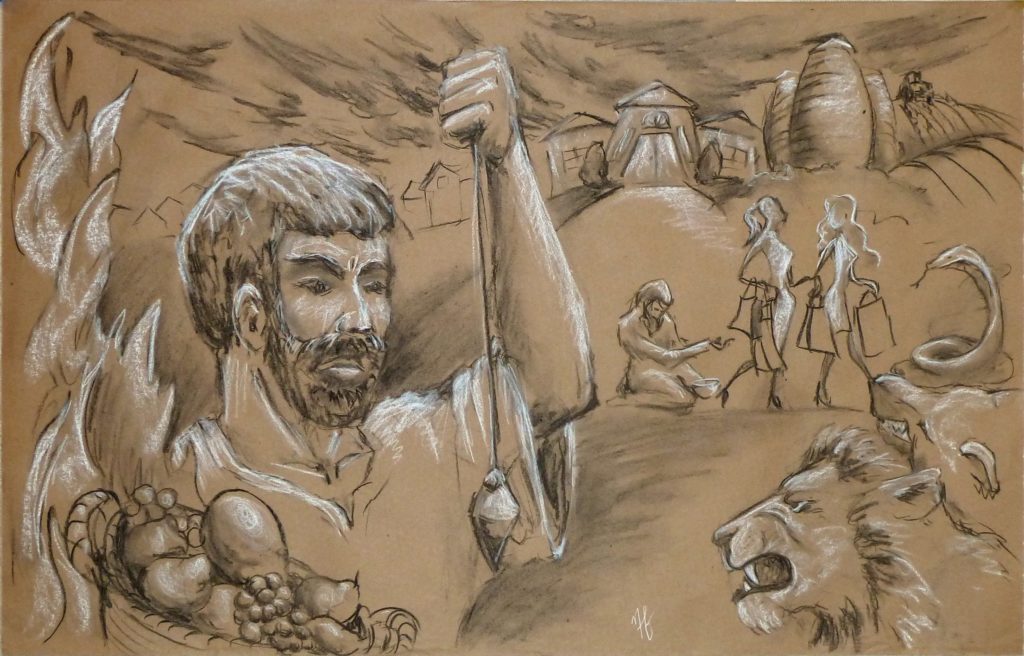 Image Description
Image Description
The lion, bear and snake in the lower right corner illustrate Amos 5:19: “[The Day of the Lord] will be as though a man fled from a lion only to meet a bear, as though he entered his house and rested his hand on the wall only to have a snake bite him.”
The two women ignoring the beggar are the “cows of Bashan… you women who oppress the poor and crush the needy” (Amos 4:1).
At the top are several large houses. Amos is critical of the size and number of the houses of the wealthy: “‘I will tear down the winter house along with the summer house; the houses adorned with ivory will be destroyed and the mansions will be demolished,’ declares the LORD” (Amos 3:15).
Image Courtesy of Earth and All Stars


